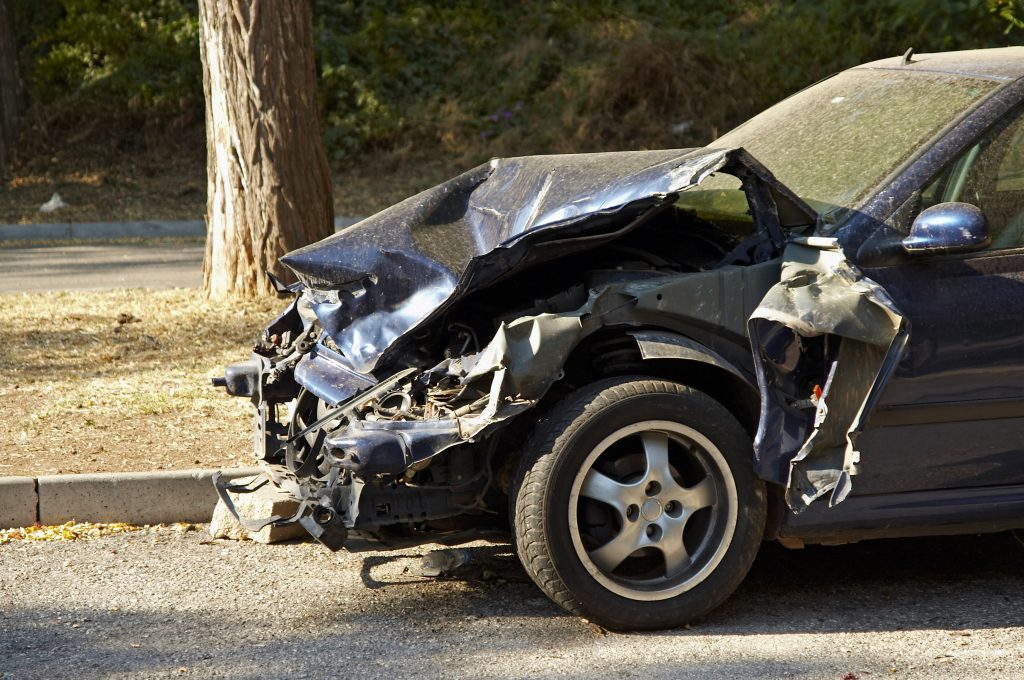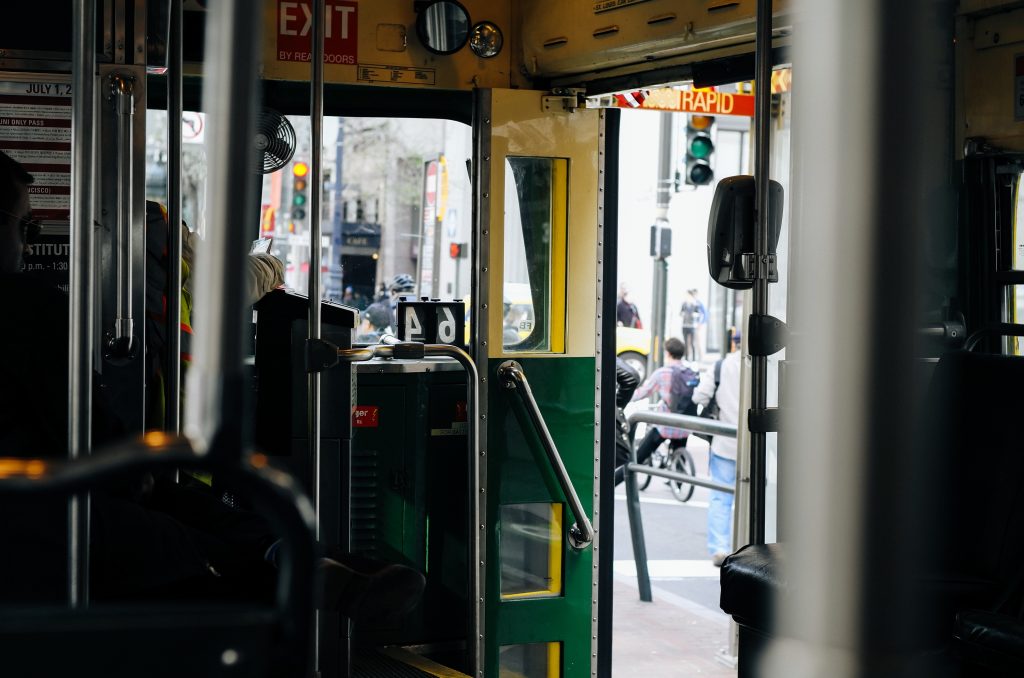 Most Louisiana residents understand the liability they may incur if they do not properly fence a backyard pool. But what about other, less obvious drowning hazards, such as a church’s baptismal pool? Who is held accountable for the failure to protect children from falling in? Typically, a church is part of a diocese and must meet the general guidelines established by the diocese in order to maintain its affiliation. For instance, the First Assembly Church of God (“First Assembly”) in Ruston, Louisiana is affiliated with the Louisiana District Council of the Assemblies of God (the “DC”) and the General Council of the Assemblies of God (the “GC”). After a tragic accident involving the toddler of a First Assembly family, Louisiana’s Second Circuit Court of Appeal was called upon to determine whether the DC and the GC had sufficient control over First Assembly to be liable for the church’s negligence.
Most Louisiana residents understand the liability they may incur if they do not properly fence a backyard pool. But what about other, less obvious drowning hazards, such as a church’s baptismal pool? Who is held accountable for the failure to protect children from falling in? Typically, a church is part of a diocese and must meet the general guidelines established by the diocese in order to maintain its affiliation. For instance, the First Assembly Church of God (“First Assembly”) in Ruston, Louisiana is affiliated with the Louisiana District Council of the Assemblies of God (the “DC”) and the General Council of the Assemblies of God (the “GC”). After a tragic accident involving the toddler of a First Assembly family, Louisiana’s Second Circuit Court of Appeal was called upon to determine whether the DC and the GC had sufficient control over First Assembly to be liable for the church’s negligence.
In 2013, Irene Che and her 22-month-old daughter attended services at First Assembly. At some point during the service, the child was found submerged in the church’s baptismal pool. Although she survived, Che’s daughter suffered brain damage that left her unable to walk, talk, or feed herself. In her lawsuit, Che alleged that First Assembly was negligent in leaving the baptismal pool unguarded, and named the church, the DC, and the GC as defendants. Che argued that the DC and the GC were liable under the theory of respondeat superior, which establishes that a person or business is responsible for the damages caused by the acts or omissions of persons over whom it exercises control. La. C.C. art. 2317. The rule has been extended by the Louisiana Civil Code to include employers, who are responsible for the damage caused by their employees in the exercise of the functions within the scope of their employment. La. C.C. art. 2320, The DC and the GC filed a motion for summary judgment contesting the application of respondeat superior to the relationship between themselves and First Assembly. The trial court granted the motion and dismissed the DC and the GC as defendants; Che appealed.
The Second Circuit analyzed the relationship created by First Assembly’s contracting with the DC and the GC to gain the right to affiliate with the Church of God. The Court, noting that the single most important factor when determining whether an employer-employee relationship exists — a step necessary to invoke respondeat superior — is whether the “employer” has the right to control the work or actions of the “employee,” found that there was no evidence that the DC and GC maintained such right over First Assembly and its employees. The Court further analyzed the DC’s and the GC’s Constitutions and By-laws, concluding that those operating documents failed to establish a relationship between the two bodies and First Assembly that could support the invocation of respondeat superior. As a result, the Court affirmed the trial court’s dismissal of the DC and the GC as defendants in the case, leaving Che to pursue her negligence claim against First Assembly alone.
 Louisiana Personal Injury Lawyer Blog
Louisiana Personal Injury Lawyer Blog


 Litigation between family members can be uncomfortable for everyone involved. But what happens when a plaintiff sues a relative, then passes away, and the relative then becomes the plaintiff? Louisiana’s Second Circuit Court of Appeal recently addressed this unusual situation in a case involving a vicious dog attack.
Litigation between family members can be uncomfortable for everyone involved. But what happens when a plaintiff sues a relative, then passes away, and the relative then becomes the plaintiff? Louisiana’s Second Circuit Court of Appeal recently addressed this unusual situation in a case involving a vicious dog attack. It is all too easy to forget just how dangerous driving can be. In addition to human factors such as sleepiness, being distracted, and stress, there is also the unpredictability of the road. Uncontrollable circumstances such as the weather or wild animals that dart into traffic can turn a regular commute into a devastating experience. But who is to blame when something unforeseeable, such as a force of nature, causes a highway catastrophe? This issue was addressed after a multi-vehicle accident on Interstate 10 near the Michael Boulevard exit in New Orleans on December 29, 2011.
It is all too easy to forget just how dangerous driving can be. In addition to human factors such as sleepiness, being distracted, and stress, there is also the unpredictability of the road. Uncontrollable circumstances such as the weather or wild animals that dart into traffic can turn a regular commute into a devastating experience. But who is to blame when something unforeseeable, such as a force of nature, causes a highway catastrophe? This issue was addressed after a multi-vehicle accident on Interstate 10 near the Michael Boulevard exit in New Orleans on December 29, 2011.  After an injury, it is natural to feel entitled to physical, mental, and financial recovery. Unfortunately, the road to recovery can be full of detours and roadblocks. Without the help of a good lawyer, it can be difficult, and perhaps impossible, to understand and adhere to the many rules of the legal system. What seems like an unfair technicality could be the result of an easily avoidable mistake.
After an injury, it is natural to feel entitled to physical, mental, and financial recovery. Unfortunately, the road to recovery can be full of detours and roadblocks. Without the help of a good lawyer, it can be difficult, and perhaps impossible, to understand and adhere to the many rules of the legal system. What seems like an unfair technicality could be the result of an easily avoidable mistake.  It is one thing to own land, but it is another thing to know what rights come with that ownership. Without the help of a good lawyer, a misunderstanding of property rights could put you in court for trespassing–or worse. For instance, it might be important to understand if installing a pipeline on land protected by conservation restrictions is allowed. This issue was addressed in 2016 when some land in Iberville Parish because of the subject of a dispute between two companies.
It is one thing to own land, but it is another thing to know what rights come with that ownership. Without the help of a good lawyer, a misunderstanding of property rights could put you in court for trespassing–or worse. For instance, it might be important to understand if installing a pipeline on land protected by conservation restrictions is allowed. This issue was addressed in 2016 when some land in Iberville Parish because of the subject of a dispute between two companies.  A non-compete clause is a common feature in many employment agreements in Louisiana. The clause is a way for an employer to restrict an employee from going to work for a competitor and thus potentially harming the original employer. Most non-compete clauses, in order to be enforceable, must contain some limitation as to time and geographical location.
A non-compete clause is a common feature in many employment agreements in Louisiana. The clause is a way for an employer to restrict an employee from going to work for a competitor and thus potentially harming the original employer. Most non-compete clauses, in order to be enforceable, must contain some limitation as to time and geographical location. The viewing of a dead body can be traumatic for many people. If that viewing is caused by the negligence of another an excellent attorney may help you secure compensation for the emotional anguish experienced from that event. Shortly after midnight on February 4, 2011, Ronnie Rodd Davis was operating a tractor-trailer, owned by Superior Carriers, on eastbound Interstate 10 near the Atchafalaya Basin Bridge in Baton Rouge. Mr. Davis noticed that a collision had recently occurred in front of him and was able to stop before joining the other cars in the collision. Due to the abrupt stop to avoid the collision Mr. Davis’ tractor-trailer was rear-ended by another tractor-trailer operated by John V. Scott, and owned by Service Transport Company. The collision caused Mr. Davis’ tractor-trailer to move forward and strike a Ford F-150 pickup truck that was involved in the initial collision. Mr. Davis exited his tractor-trailer and upon exiting saw the deceased driver of that Ford F-150, Jonas T. Richmond, under or near Mr. Davis’ trailer axle.
The viewing of a dead body can be traumatic for many people. If that viewing is caused by the negligence of another an excellent attorney may help you secure compensation for the emotional anguish experienced from that event. Shortly after midnight on February 4, 2011, Ronnie Rodd Davis was operating a tractor-trailer, owned by Superior Carriers, on eastbound Interstate 10 near the Atchafalaya Basin Bridge in Baton Rouge. Mr. Davis noticed that a collision had recently occurred in front of him and was able to stop before joining the other cars in the collision. Due to the abrupt stop to avoid the collision Mr. Davis’ tractor-trailer was rear-ended by another tractor-trailer operated by John V. Scott, and owned by Service Transport Company. The collision caused Mr. Davis’ tractor-trailer to move forward and strike a Ford F-150 pickup truck that was involved in the initial collision. Mr. Davis exited his tractor-trailer and upon exiting saw the deceased driver of that Ford F-150, Jonas T. Richmond, under or near Mr. Davis’ trailer axle. People seek assistance from the courts for a number of reasons. Some may demand a monetary payment after suffering a loss due to another’s wrongful conduct. Others may aim to
People seek assistance from the courts for a number of reasons. Some may demand a monetary payment after suffering a loss due to another’s wrongful conduct. Others may aim to  Accidents involving children are difficult for everyone involved. When the accident results in extensive, life-changing injuries, the situation becomes even more tragic and often results in multiple lawsuits. A person cannot recover damages unless he or she has a recognized claim to do so under law. This concept is known as “standing.” Calvernia Reed, maternal aunt to an injured minor child, Geneva Marie Fils, got a glimpse into how strictly Louisiana courts construe that standing requirement.
Accidents involving children are difficult for everyone involved. When the accident results in extensive, life-changing injuries, the situation becomes even more tragic and often results in multiple lawsuits. A person cannot recover damages unless he or she has a recognized claim to do so under law. This concept is known as “standing.” Calvernia Reed, maternal aunt to an injured minor child, Geneva Marie Fils, got a glimpse into how strictly Louisiana courts construe that standing requirement.  The old saying goes: nothing is certain but death and taxes. In the case of property taxes on real, or immovable, property, failure of payment can permit the sheriff of the parish in which the property is located to hold a “tax sale.” In a tax sale, the delinquent property taxes are paid out of the proceeds of the property’s sale. Removing a homeowner from his residence in order to pay overdue taxes is a very serious and potentially damaging action — both financially and emotionally — for the homeowner. For this reason, under Louisiana law, property owners who lose their homes due to a tax sale have options for reclaiming their property after a tax sale if they can obtain sufficient funds to make good on what they owe. This process is known as redemption of the property. If redemption is not feasible, a homeowner can still seek an annulment of the tax sale if certain conditions are met. A case that came before Louisiana’s Fifth Circuit Court of Appeal illustrates how these procedures operate.
The old saying goes: nothing is certain but death and taxes. In the case of property taxes on real, or immovable, property, failure of payment can permit the sheriff of the parish in which the property is located to hold a “tax sale.” In a tax sale, the delinquent property taxes are paid out of the proceeds of the property’s sale. Removing a homeowner from his residence in order to pay overdue taxes is a very serious and potentially damaging action — both financially and emotionally — for the homeowner. For this reason, under Louisiana law, property owners who lose their homes due to a tax sale have options for reclaiming their property after a tax sale if they can obtain sufficient funds to make good on what they owe. This process is known as redemption of the property. If redemption is not feasible, a homeowner can still seek an annulment of the tax sale if certain conditions are met. A case that came before Louisiana’s Fifth Circuit Court of Appeal illustrates how these procedures operate.